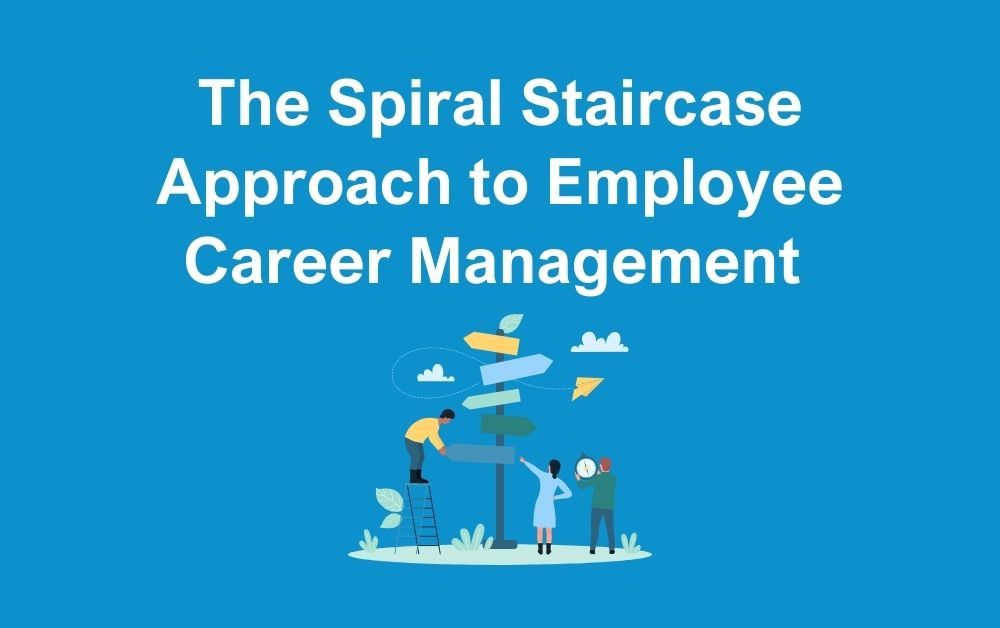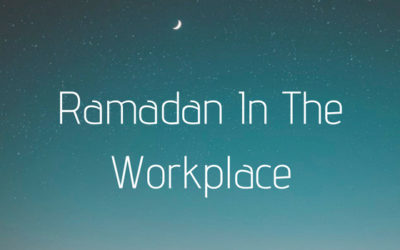We investigate the spiral staircase approach to employee management.
That all-important career ladder may feel like a rush to the top, with each step moving closer to the pinnacle of power, but this isn’t the case in the modern workplace.
Careers are a far more flexible affair and there’s no longer the crushing need to be constantly moving upwards and seeking out the next promotion.
But make no mistake, this doesn’t mean individuals lack ambition or vision, quite the reverse. Instead, they have the foresight to recognise that there’s more than one way to move in order to ultimately progress, and the best managers need to be able to see this alternative path too.
Here’s a closer look at the spiral staircase approach and why it’s so vital for good employee career management.
Explaining the concept
The traditional “career ladder” is a strictly vertical affair, with each foot tentatively being placed on the next rung, ready to move on as soon as the opportunity becomes available.
But with multi-generational workplaces, there’s had to be a shift in emphasis because there are not as many vacancies at the top, with experienced staff taking retirement far later. For the individual who is ready for the next challenge, this can be a frustrating state of affairs.
The spiral staircase approach allows employees to move around, not necessarily gaining any seniority, but instead learning different skills, or working in a new department or area. When there’s space above, the employee will have a far broader range of skills to bring to the role, and will have much greater experience of the business overall.
This kind of movement where an individual might move sideways, or even downwards, is known as a spiral staircase and can be a very flexible way of managing an employee’s needs.
When it might be helpful
As a manager of people, the spiral staircase should be a concept that’s always at the back of your mind. You may want to hang on to the best people in your department but it’s not fair to hold someone back or deny the company of their skill elsewhere, so try to think of the bigger picture.
Although it’s an important concept for everyone, there are some situations where it may be particularly relevant.
When an individual is chomping at the bit for more responsibility, or a move upwards, but there are no immediate opportunities, there’s a risk of losing them to a competitor. Hanging on to your best people and making them feel valued, regardless of their age is important. Despite the perception that only youngsters need to hear positive feedback, studies have shown that it’s important to employees of all ages.
Providing the chance to expand their skill base by tackling something different, even if it’s technically not a promotion may be all it takes to keep a key individual feeling nurtured, stimulated and content.
Of course, there may be some individuals who don’t want to progress any higher, perhaps because they don’t want to go into management, preferring a technical career path instead. These people could really benefit from a spiral staircase as even though they may not crave a promotion, they probably don’t just want to sit and stagnate.
Finally, there may be those that want to take a step back for a while, whether it’s personal commitments such as a new baby, illness in the family or even personal health issues. It’s important to reassure them that if they choose to do so, it doesn’t mean their path ahead is blocked. Making the decision to have some time out, or cutting back on responsibilities for a while until they’re in a better position to move forward is a very creditable decision to have made and deserves plaudits, not criticism.
Conclusion
A spiral staircase keeps everyone happy: the company get to keep their most valued staff and no-one feels overlooked, or undervalued, having been given alternative opportunities to explore. The contemporary career ladder is far more flexible and although the route to the top may be less direct, it’s far more enjoyable.
For more information contact us at The HR Booth on 01383 668178 or email us at info@thehrbooth.co.uk







